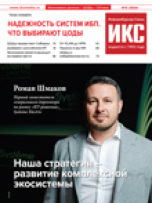| Рубрикатор |  |
 |
| Все новости |  |
World News |  |
 |
EU lawmakers deal fresh blow to antipiracy treaty
| 13 апреля 2012 |
European lawmakers dealt a fresh blow to a global accord against online piracy and counterfeiting on Thursday after a key member of the European Parliament said he opposed the treaty.
Amid sharpening opposition to the agreement in Europe, David Martin, who is guiding the legislation through Parliament, said he would recommend voting down the Anti-Counterfeiting Trade Agreement, or ACTA, when it comes to the legislature in coming months.
Martin, who is from the center-left Socialist group, said the controversial
accord, which was signed in January, didn't provide enough guarantees for
citizens.
"What
it delivers in terms of important intellectual property rights is diminished by
potential threats to civil liberties and Internet freedom," he said,
following consultation with industry, union and Internet representatives.
Amid public protests against the treaty and accusations it could infringe on
privacy rights, the European Commission in February referred ACTA to the
European Court of Justice, asking the European Union's top court. The
Commission, the EU's executive, has consistently defended the treaty but said
an opinion on the legality of ACTA from the ECJ would help clarify the debate.
The court is thought unlikely to weigh in on the case until next year, EU
officials say.
ACTA aims to beef up international standards for intellectual property
protection, for example by clamping down on counterfeit goods and medicine. But
concerns have been raised over how ACTA could be applied in cyberspace.
The leader of the Socialist Group, Hannes Swoboda, also gave ACTA the thumbs
down and said he would urge members of his party, the parliament's second
largest political grouping, to reject it when it comes up for a vote in the
coming weeks.
So far, 22 of the 27 EU's member states as well as other countries including
the U.S. and Japan have signed up to ACTA, though no country has already
ratified the pact.
The European People's Party, the parliament's largest political group, remains
split on whether to back the treaty.
Sophie In't Veld, who heads the parliament's civil liberty group, said it
remained unclear how ACTA would be applied on the Internet.
"It's ambiguous in its wording. But it's clear from the minutes we've seen
and from the negotiations that countries like the United States would use it to
introduce additional legislation to cover the internet."
In't Veld said she was particularly concerned that the treaty could potentially
allow Internet providers to block out users caught downloading products
illegally and to monitor their online activities.
Источник: Total Telecom















Оставить свой комментарий:
Комментарии по материалу
Данный материал еще не комментировался.